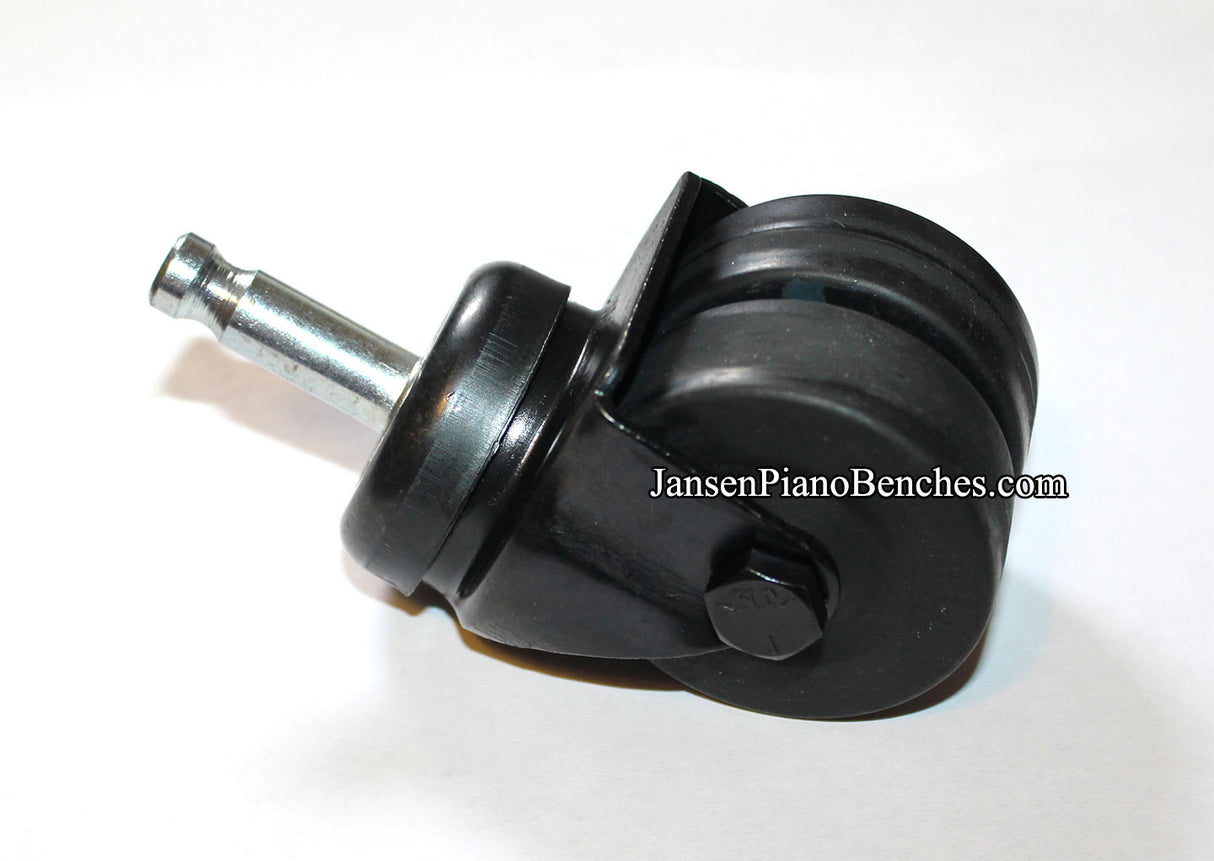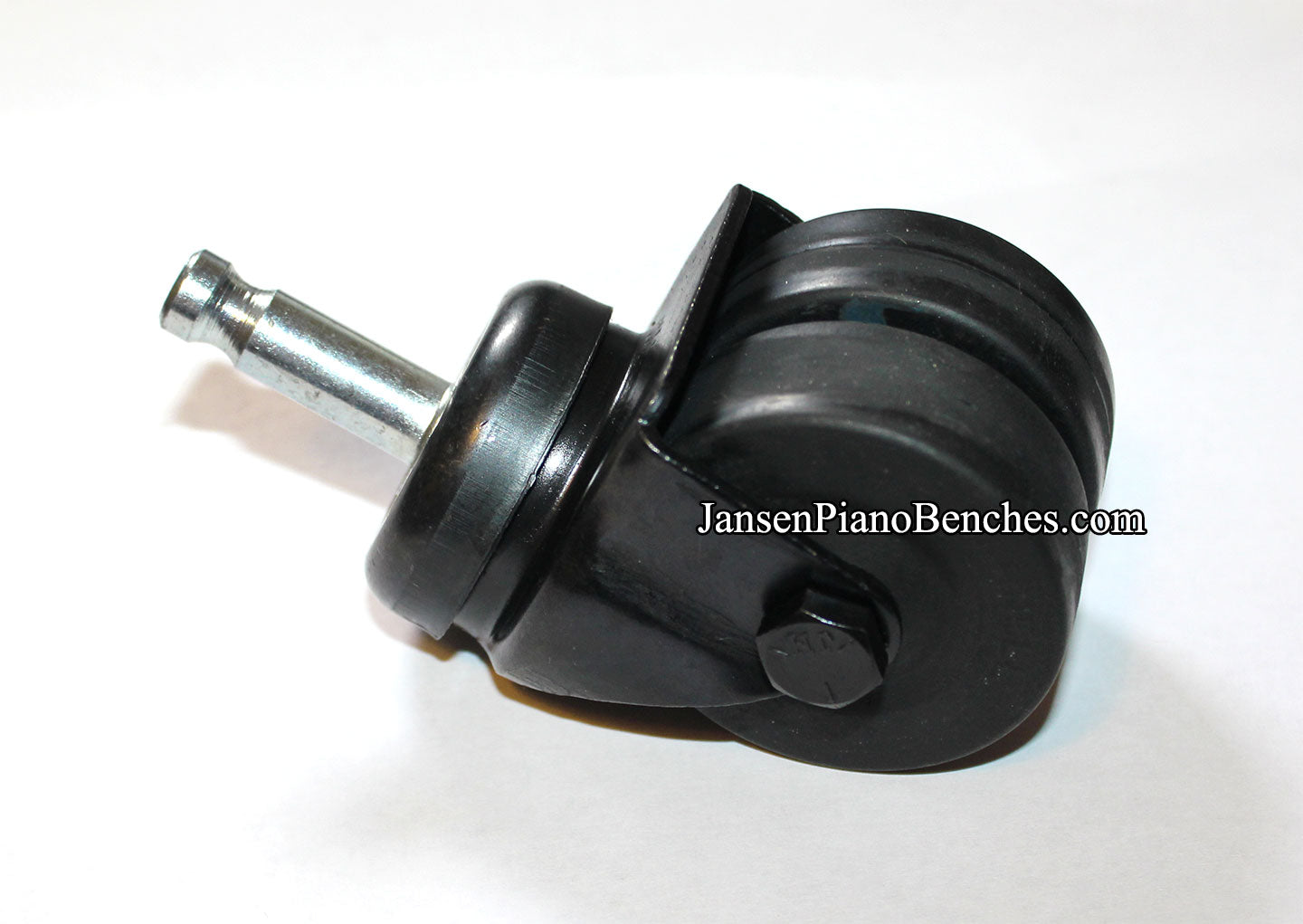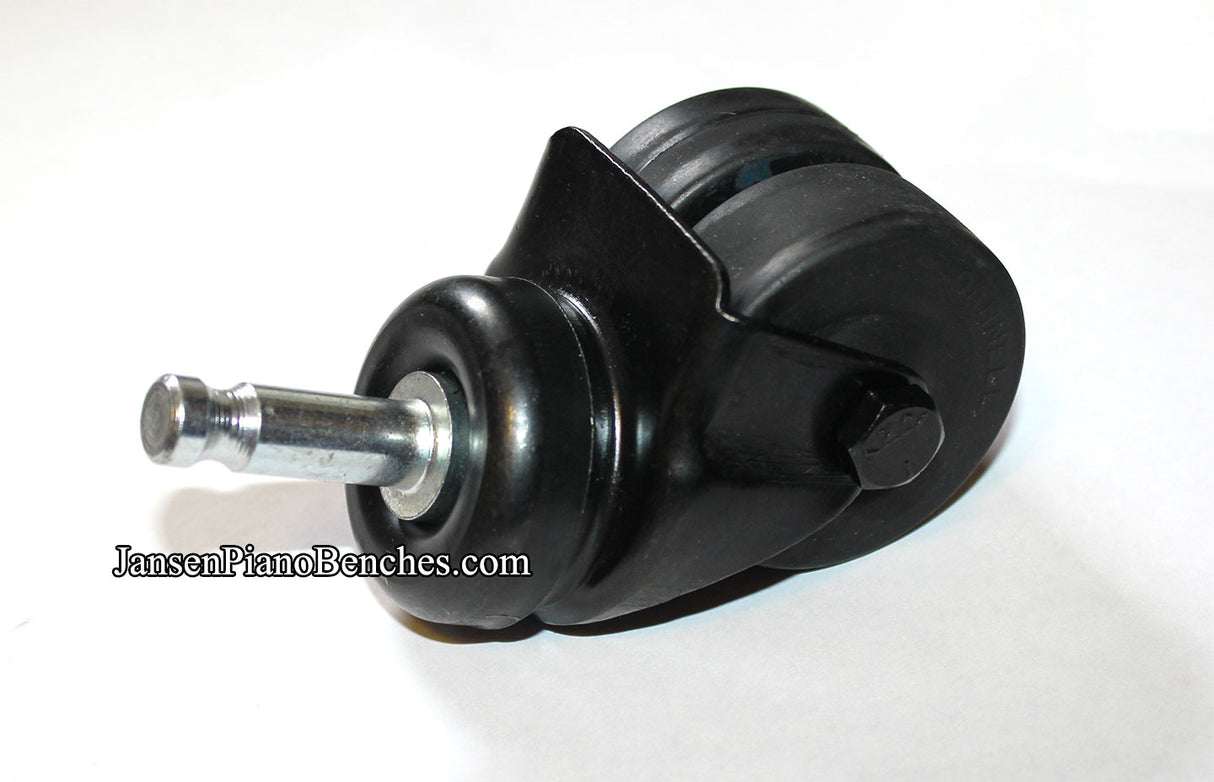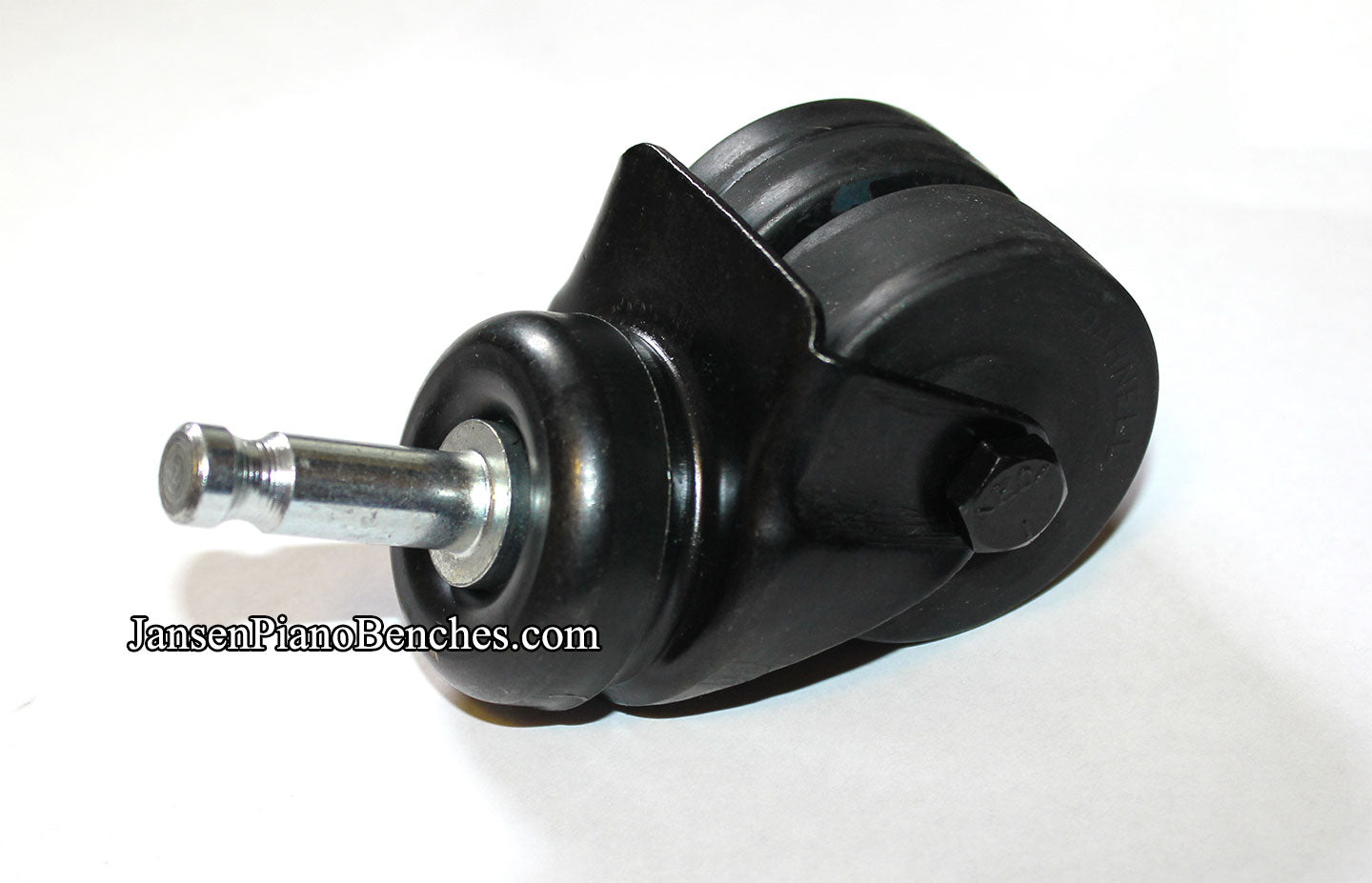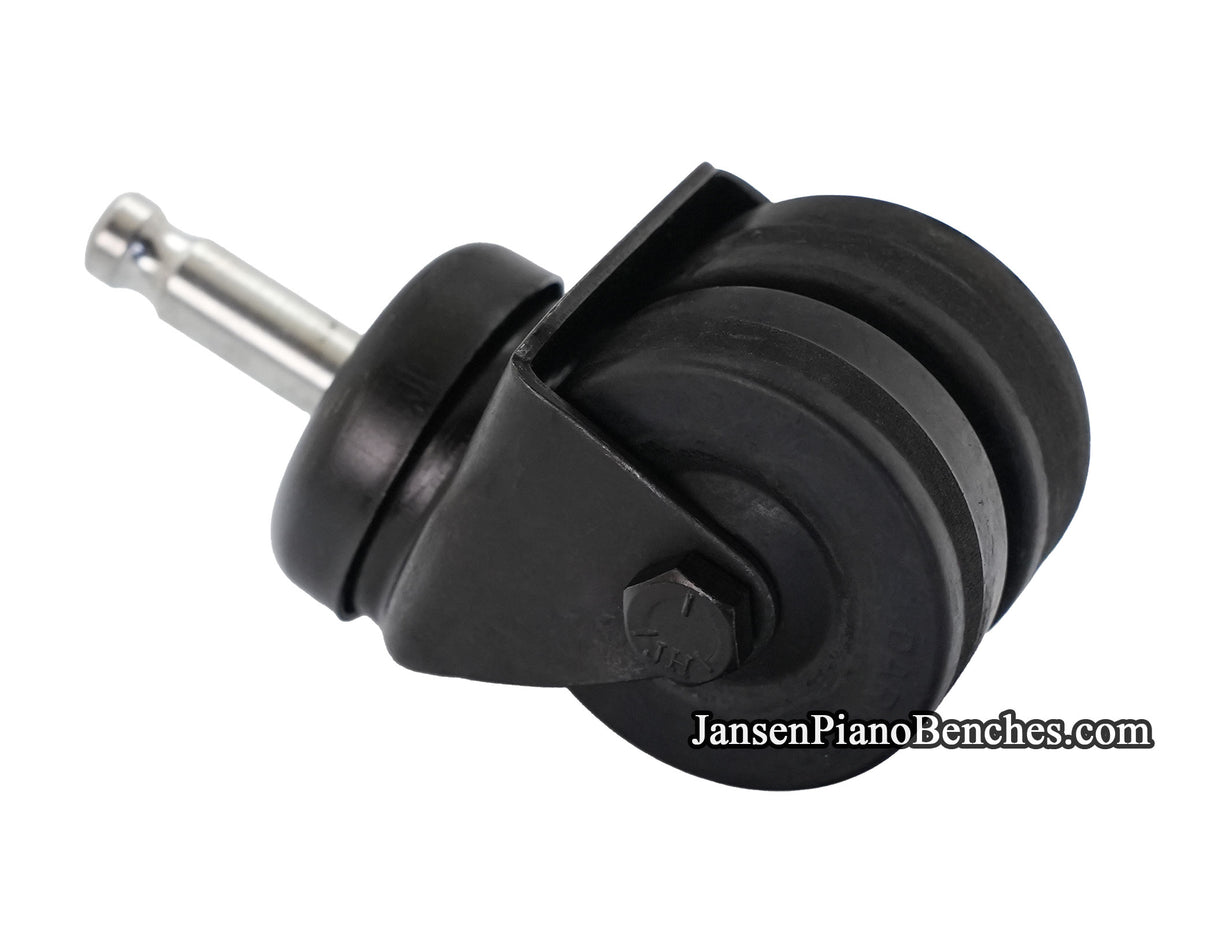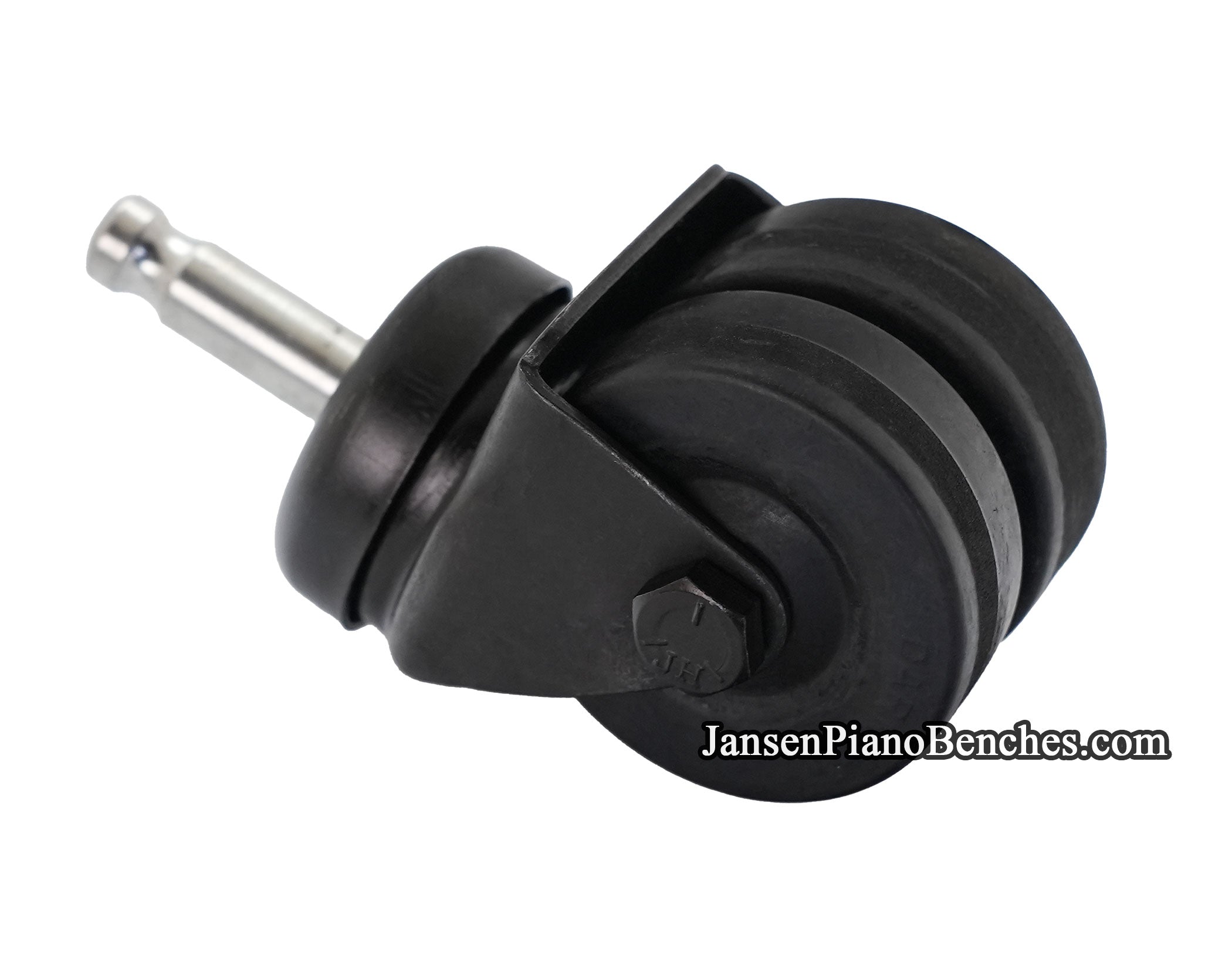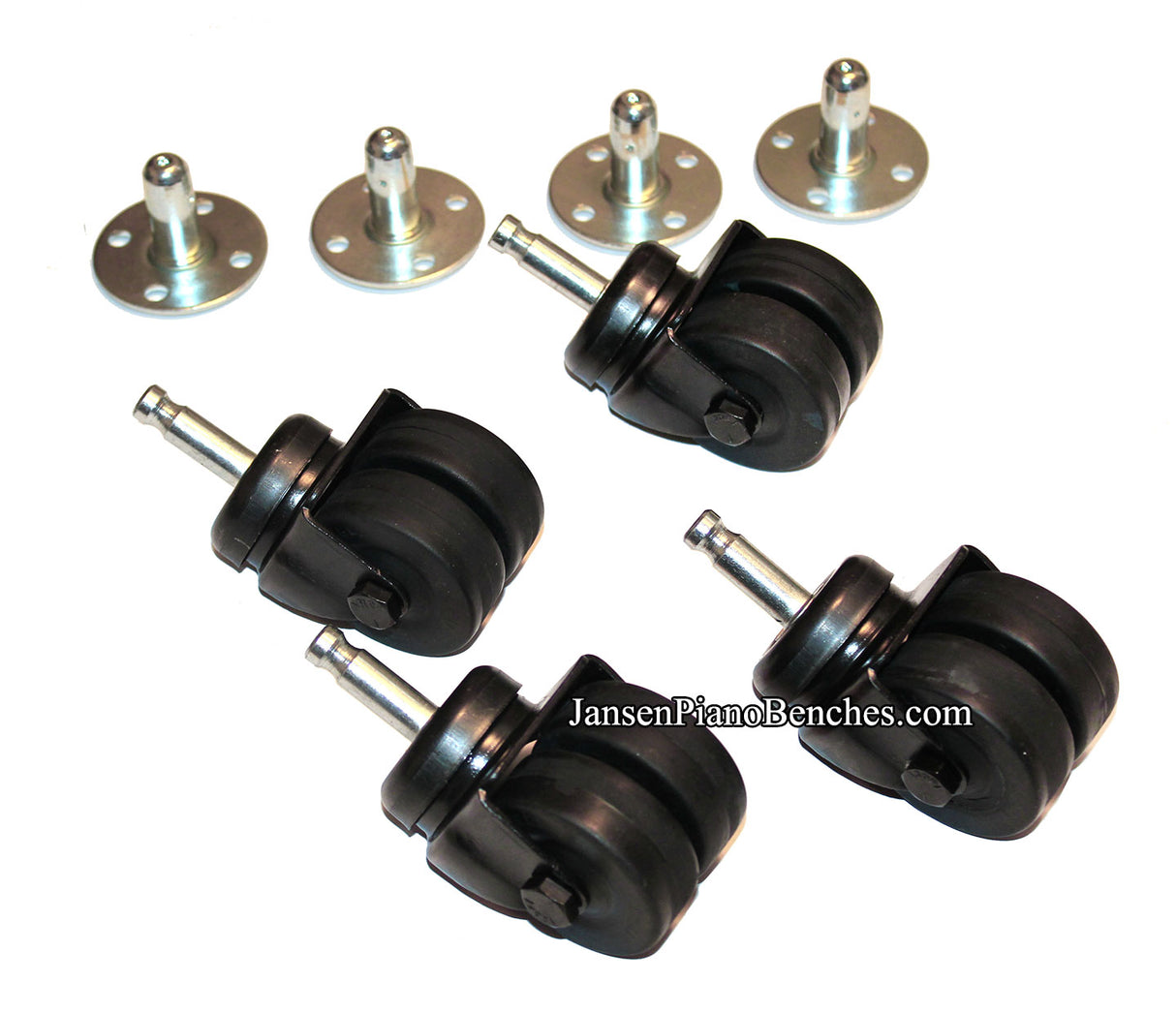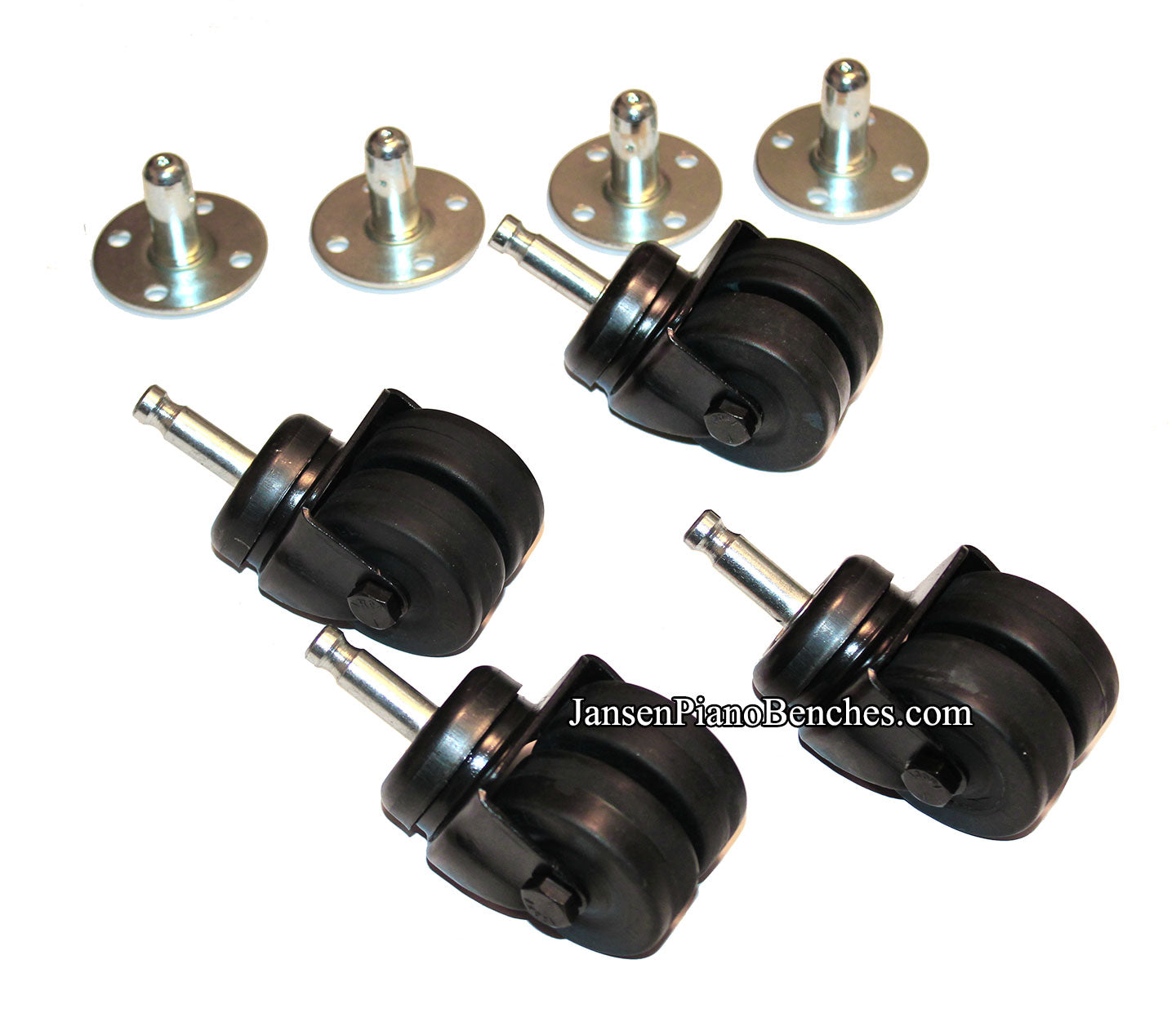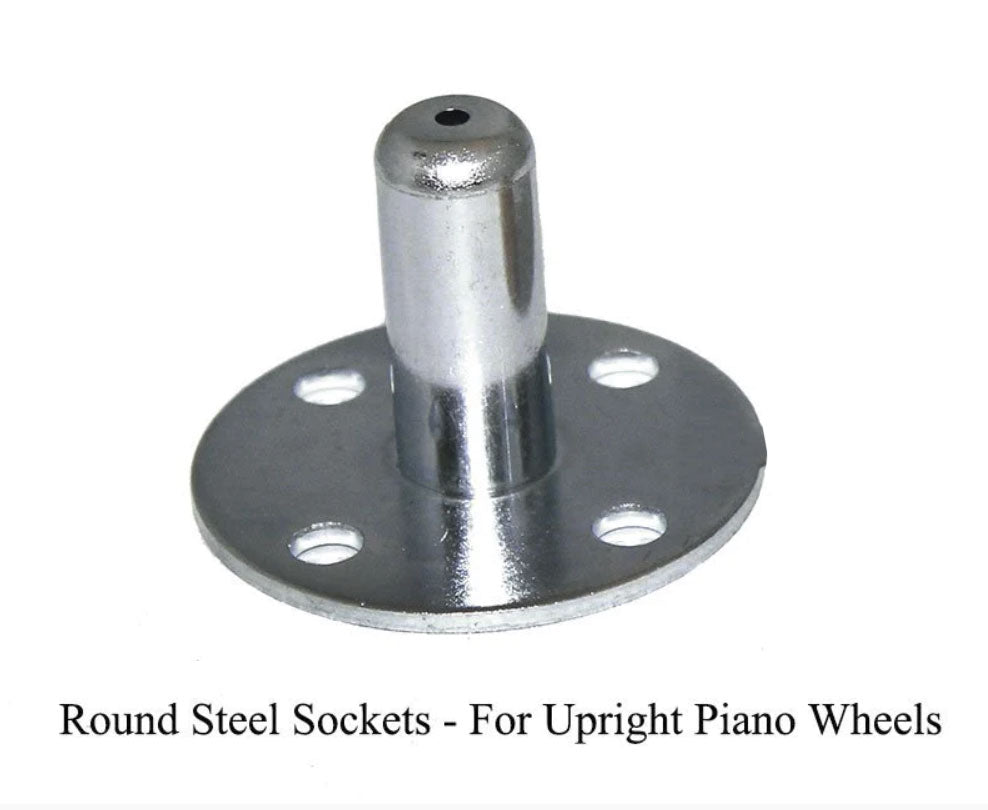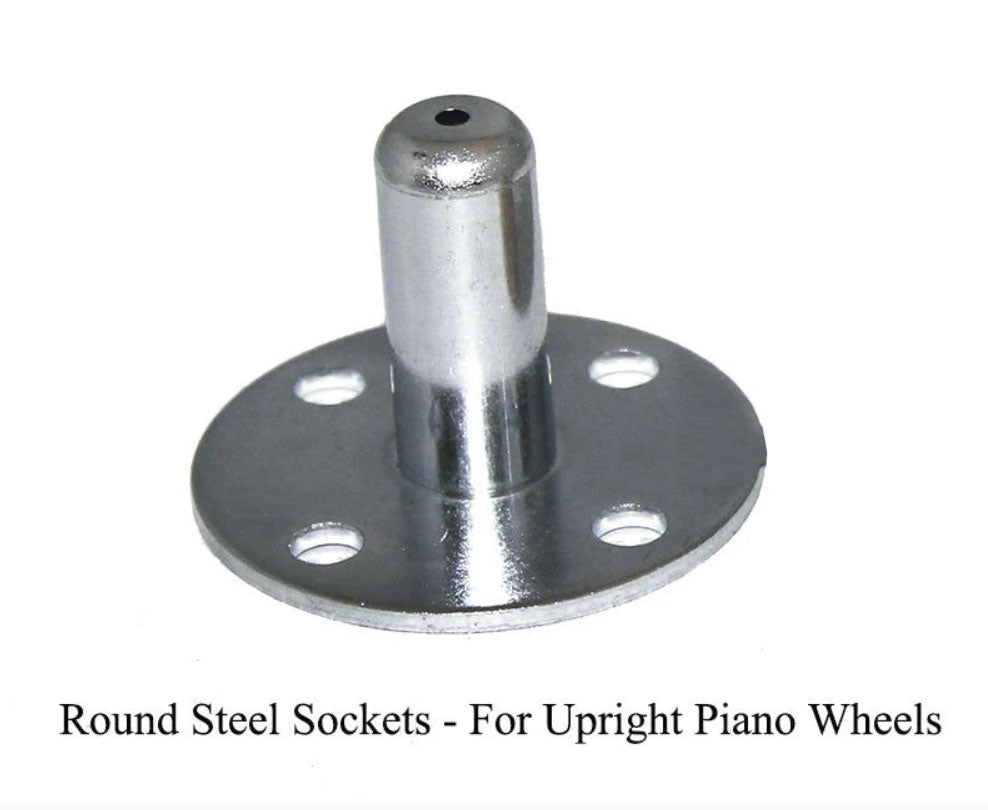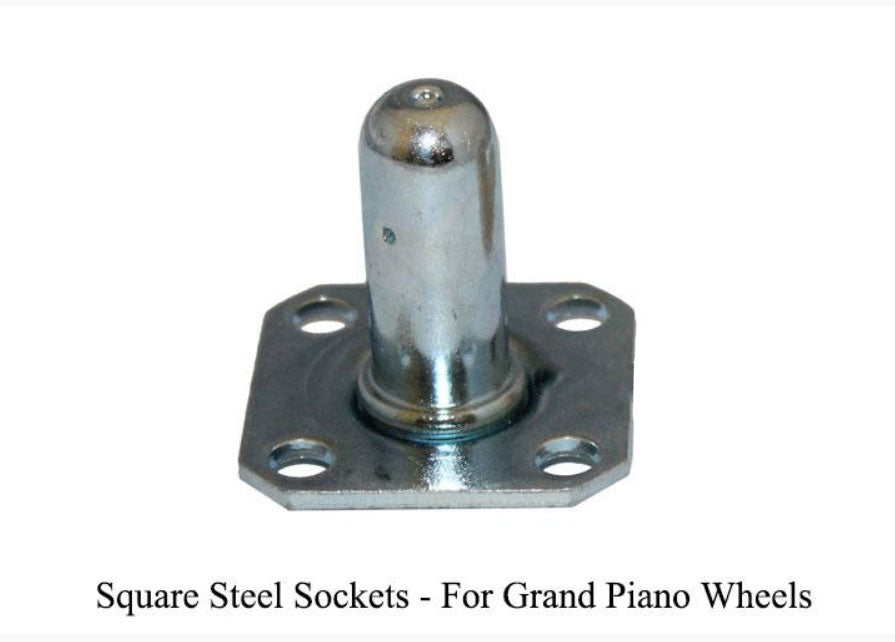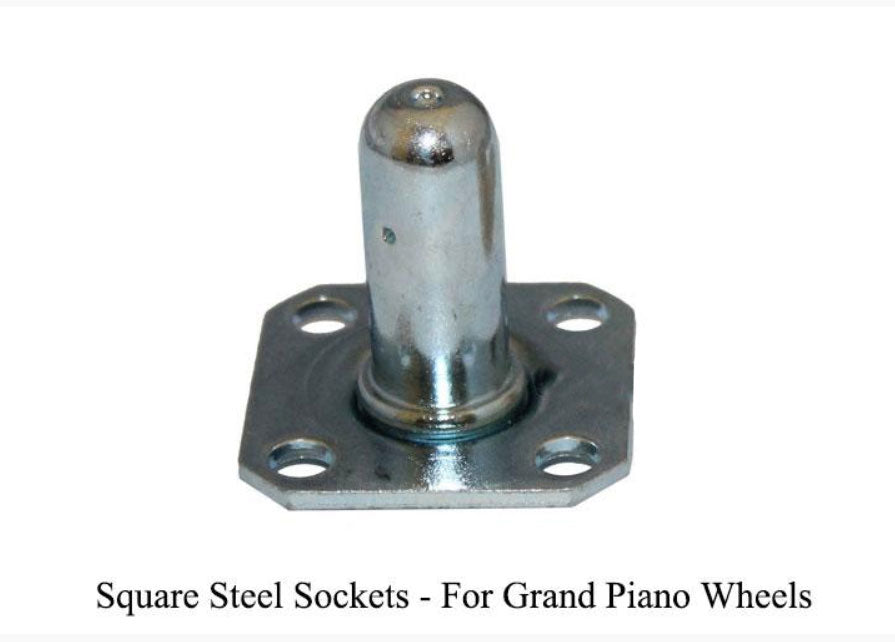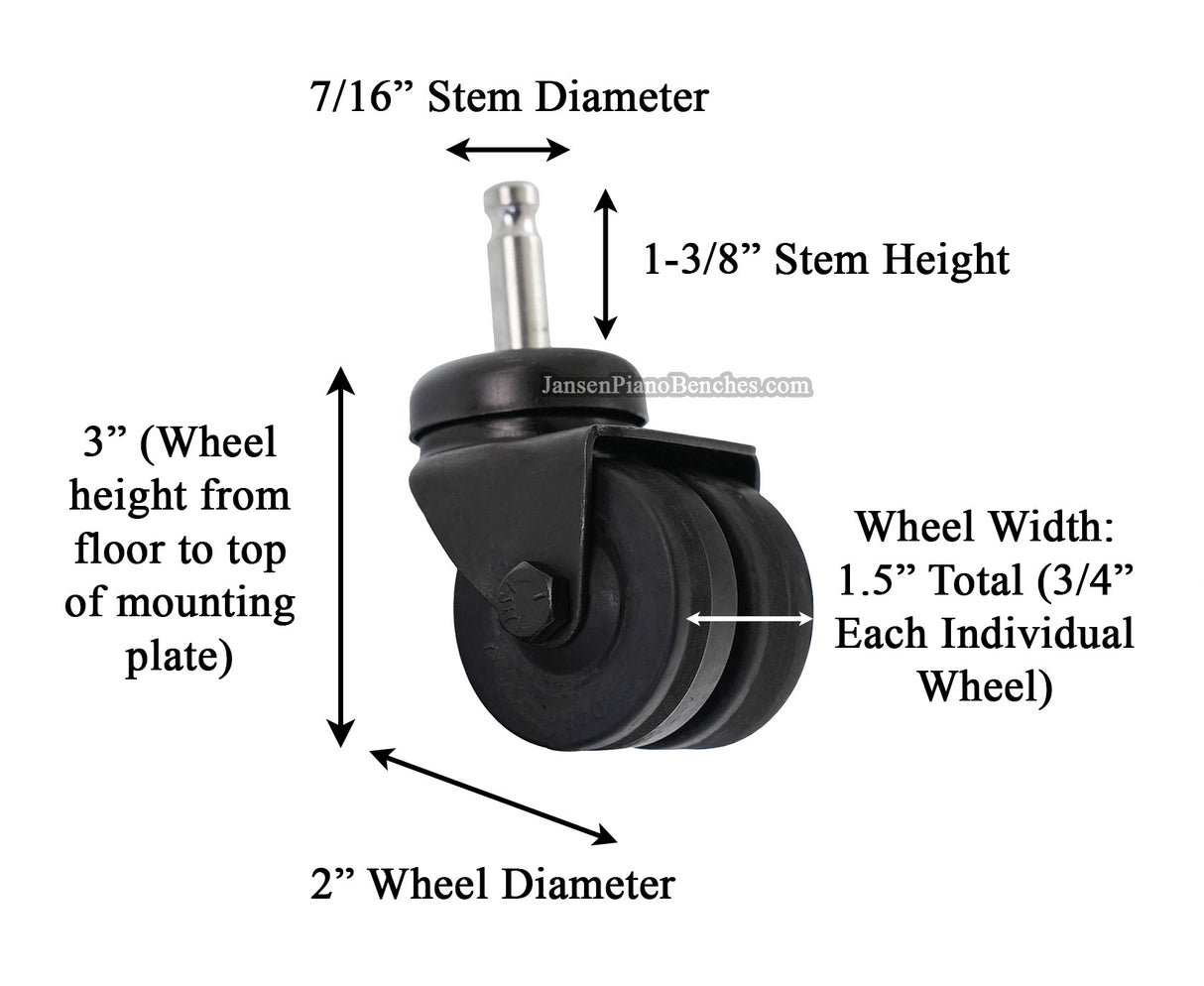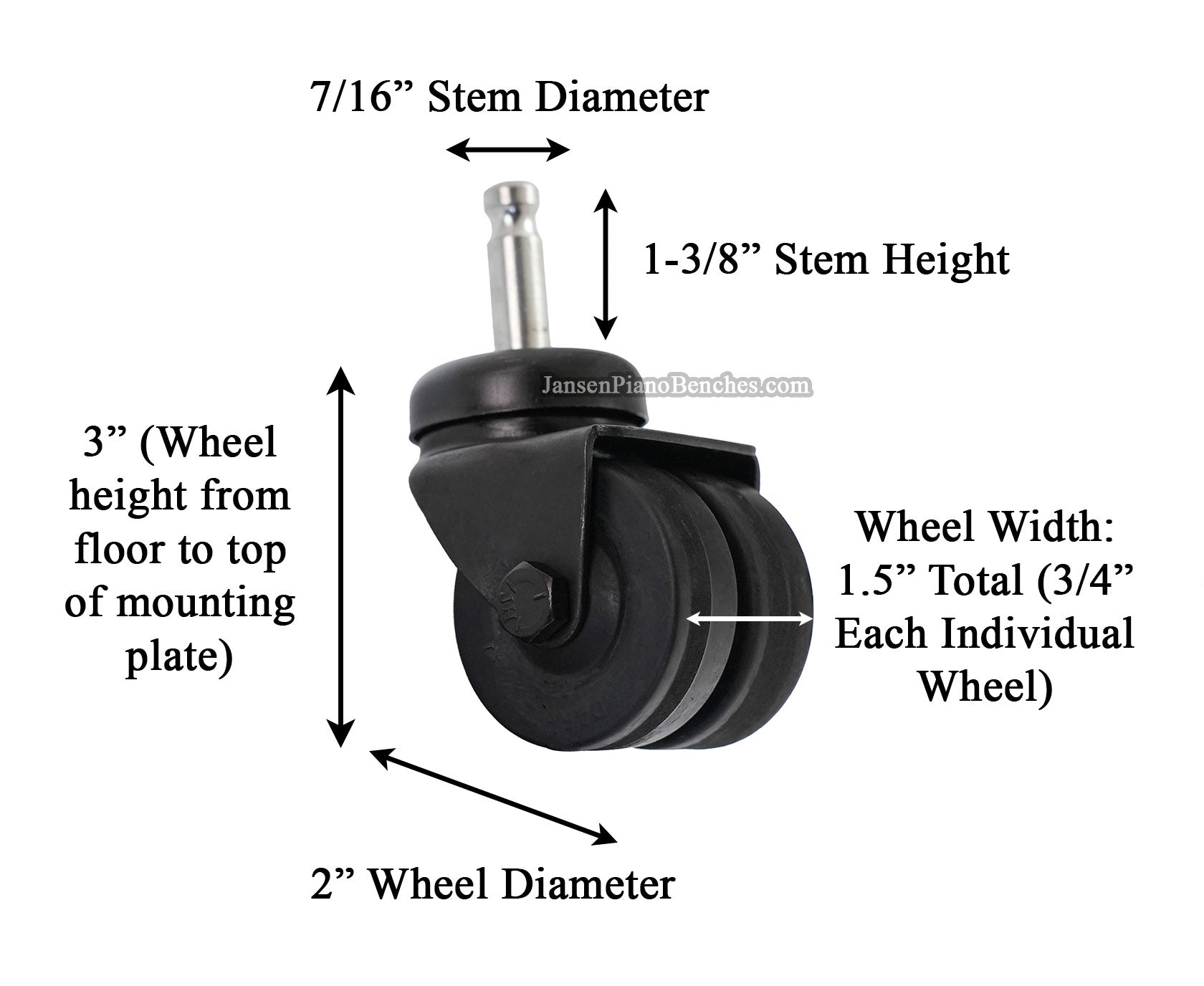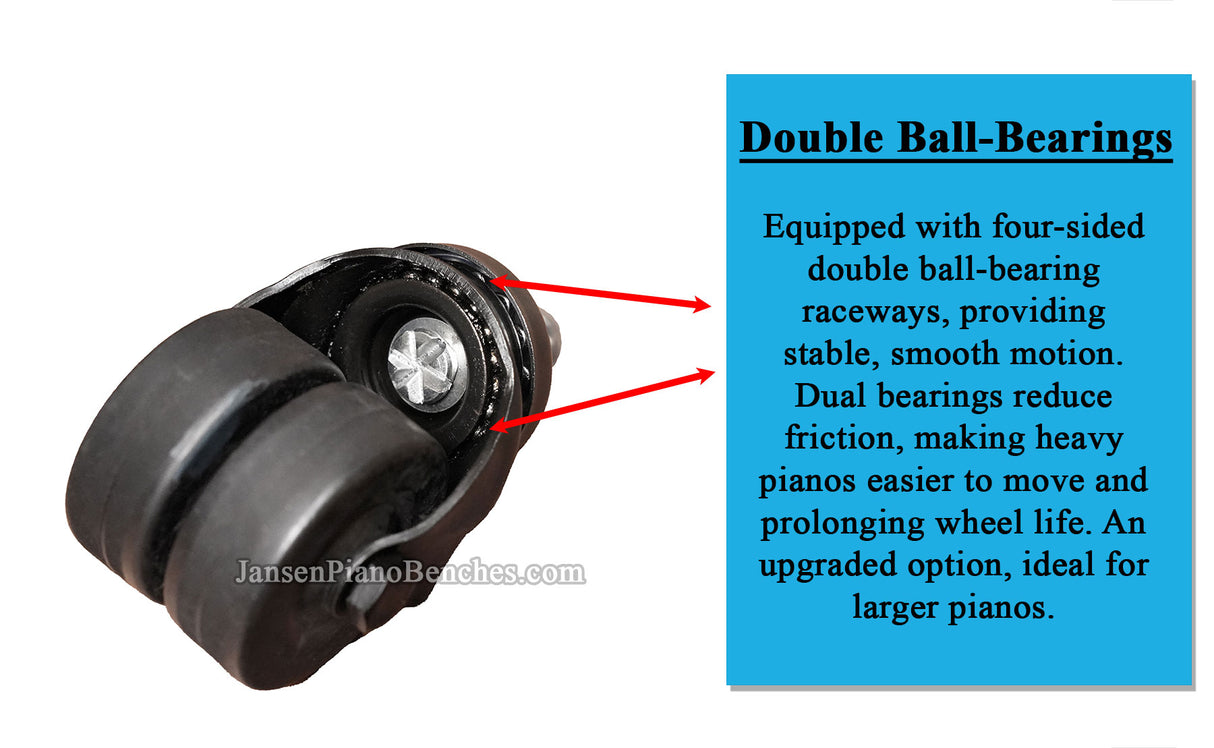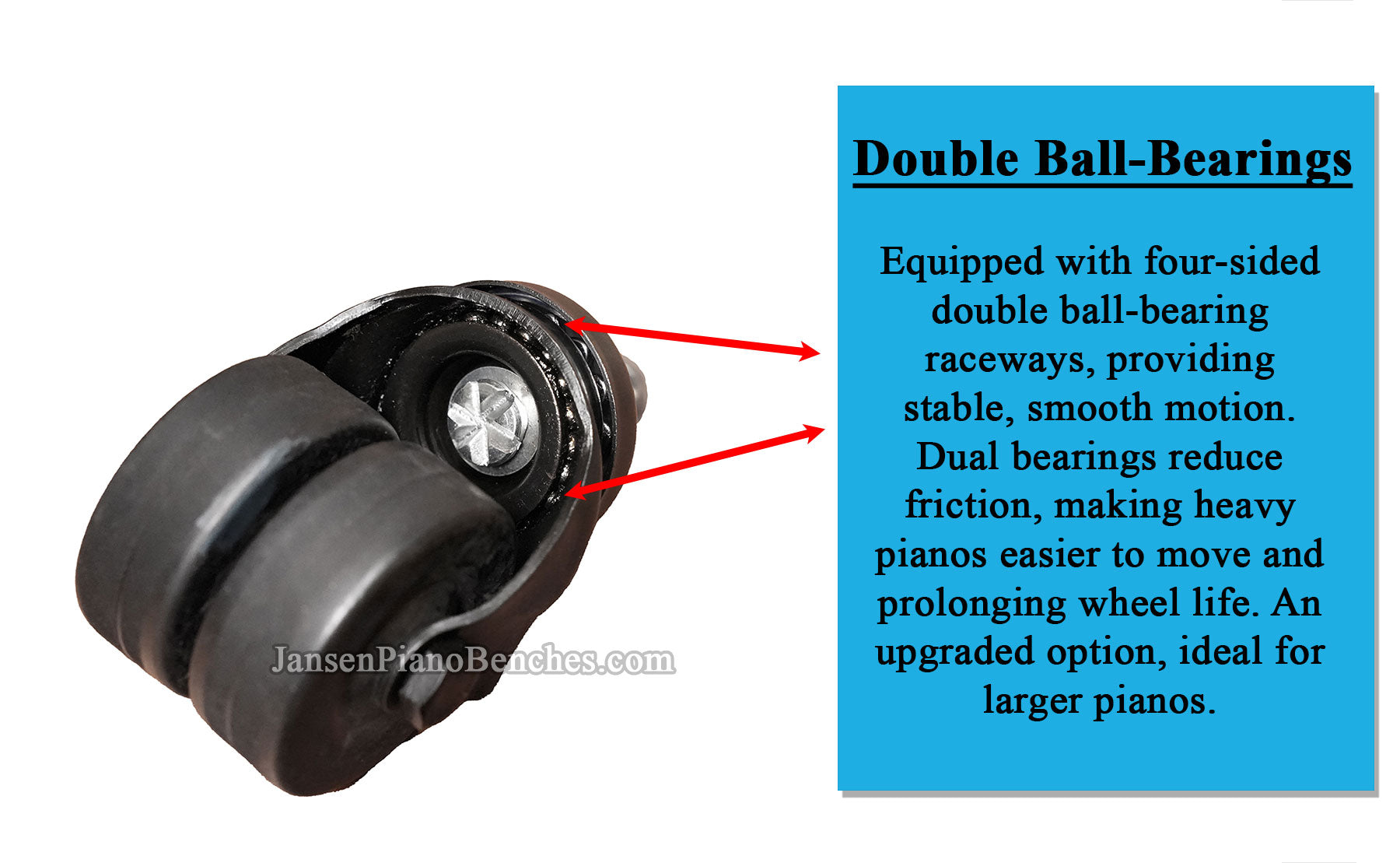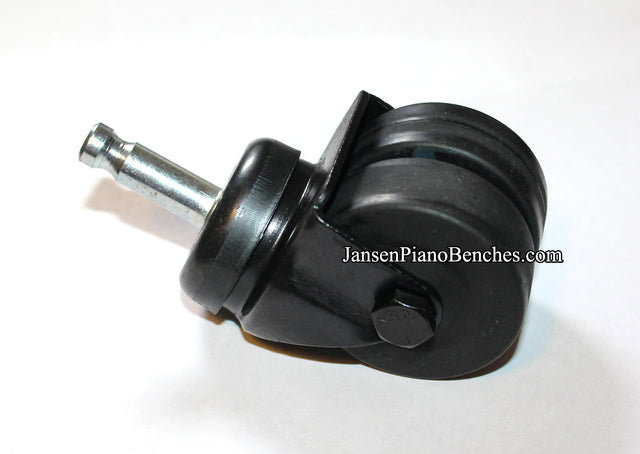Darnell Double Wheel Piano Casters - Dual Rubber Wheels
Darnell Double Wheel Piano Casters - Dual Rubber Wheels - Grand Piano Wheels - Set of 3 Wheels ($197.20) is backordered and will ship as soon as it is back in stock.
These Darnell piano wheels are the highest quality rubber wheeled piano casters on the market, and are ideal for heavier pianos. Equipped with dual rubber wheels, each caster supports 200 lbs (therefore 4 wheels with support an upright piano of 800 lbs). The other dual rubber wheeled casters on our website hold 160 lbs each.
Included are the removable, pressed steel sockets with 4 screw holes to attach to the bottom of your piano legs. The upright wheels come with the round CR-3 sockets, and the grand wheels come with the CS-3 square caster sockets.
The Darnell dual-wheel piano casters are equipped with four-sided double ball-bearing raceways, providing stability and smooth movement by evenly distributing weight across all sides of the bearing. The double layers of ball bearings reduce friction, making it easier to move a heavy piano. This setup also enhances durability, as the even weight distribution and dual bearings reduce wear over time. Additionally, it provides better control and reduces wobbling, which is beneficial for delicate movements and maintaining balance.
Upgraded rubber wheels are made out of a high-capacity Neoprene. This wheel material supports the weight of larger pianos while allowing easier movement.
If you're looking for the best way to move your heavier piano, these upgraded casters are your top option--the rubber wheels are designed to support the weight of your piano while not denting or scratching your floors, and it's much easier to push a piano on rubber wheels than it is on brass casters.
Measurements:
- Wheel Diameter: 2"
- Wheel Width: 3/4"
- Height without the stem: 3"
- Stem Dimension: 7/16" diameter x 1-3/8" Long
What are four-sided, double ball bearing raceways?
- The term "four-sided" means that the ball bearings are positioned to support load distribution on all four sides of the raceway. This structure allows for balanced weight distribution, reducing stress on any one side of the wheel. With support on all sides, the wheels are more stable and can move smoothly in any direction, which is especially useful for heavy objects like pianos.
- “Double ball-bearing” means that there are two layers or rows of ball bearings within the raceway. This setup allows for a higher load capacity and smoother rotation because it reduces friction between the moving parts. Double bearings also increase durability, as the two layers help manage weight and motion better than a single row of bearings, minimizing wear and tear over time.
Advantages of four-sided, double-ball bearing raceways:
- Increased Stability and Smoothness: With four-sided support and double bearings, these wheels offer a smoother and more stable roll, which is essential for moving heavy pianos without jolts or sudden shifts.
- Enhanced Weight-Bearing Capacity: The double-layer bearings provide extra strength, allowing the wheels to handle the significant weight of a piano without bending or deforming.
- Reduced Friction and Wear: The ball bearings reduce friction between the wheel and axle, which not only makes moving easier but also helps the wheels last longer by reducing wear on the raceway.
Free Shipping:
-
Piano Wheel Type
-
Wheel Diameter
-
Load Capacity
-
Instrument CompatibilityUpright Piano, Grand Piano
-
Wheel MaterialRubber
-
Country of Origin
-
Color
Professional-Grade Rubber Piano Wheels for Heavy Upright & Grand Pianos
Frequently Asked Questions
What are the best piano casters for moving large or heavy pianos?
What are the best piano casters for moving large or heavy pianos?
Why is Neoprene rubber better for piano wheels?
Why is Neoprene rubber better for piano wheels?
What type of piano wheels are best for hardwood floors?
What type of piano wheels are best for hardwood floors?
Rubber piano wheels are ideal for hardwood floors. They provide smooth movement and minimize the risk of scratches or dents. With larger, heavier pianos, brass wheels, while durable, can damage some wood floors unless used with protective caster cups.
What makes Darnell piano wheels different from other casters?
What makes Darnell piano wheels different from other casters?
Will these piano casters fit my piano?
Will these piano casters fit my piano?
Every piano is a little different, and unfortunately, there's no universal database that matches caster sizes to specific piano models. However, we provide detailed specifications for each product — including stem diameter, stem length, and wheel size — so you can measure your piano’s existing mounting holes and compare.
If your piano’s leg socket is slightly smaller than the stem, you may need to carefully widen the hole to fit. In most cases, installation is straightforward.
Are these piano casters suitable for institutional use?
Are these piano casters suitable for institutional use?
Do I need to replace my piano wheels?
Do I need to replace my piano wheels?
How to choose the right piano casters
How to choose the right piano casters
Choosing the right piano casters depends on your piano type, flooring, and how often you move the instrument. Here are five key factors to consider:
- Piano Type – Upright pianos use 4 casters, while grand pianos use 3.
- Floor Type – Rubber casters are best for hardwood and tile. Brass wheels should be paired with caster cups to prevent floor damage.
- Weight Capacity – Match the wheels to your piano’s weight. Most range from 120 to 300 lbs per wheel.
- Mobility Needs – If you move your piano often or over longer distances, double rubber wheels with ball-bearings provide smoother, safer transport.
- Usage Frequency – For schools, churches, or stage pianos that get repositioned often, choose heavy-duty rubber wheels designed for frequent movement.
Should I get rubber or brass piano casters?
Should I get rubber or brass piano casters?
It depends on your floor type and how often you move your piano. Rubber casters are the better choice for hardwood, tile, or laminate flooring — they offer smoother, easier movement while protecting against scratches and dents. Brass casters are more traditional and visually elegant, and are the ultimate aesthetic accessory for a piano.
For most homes, churches and schools, rubber wheels are the safer, more floor-friendly option. If you want the classic brass look, consider pairing them with caster cups to protect your floor.
Can piano wheels be used on carpet or tile?
Can piano wheels be used on carpet or tile?
Yes, both rubber and brass piano wheels work on carpet or tile. Rubber wheels offer smoother movement and better grip on tile, while brass wheels roll well on carpet but may leave indentations without proper weight distribution

